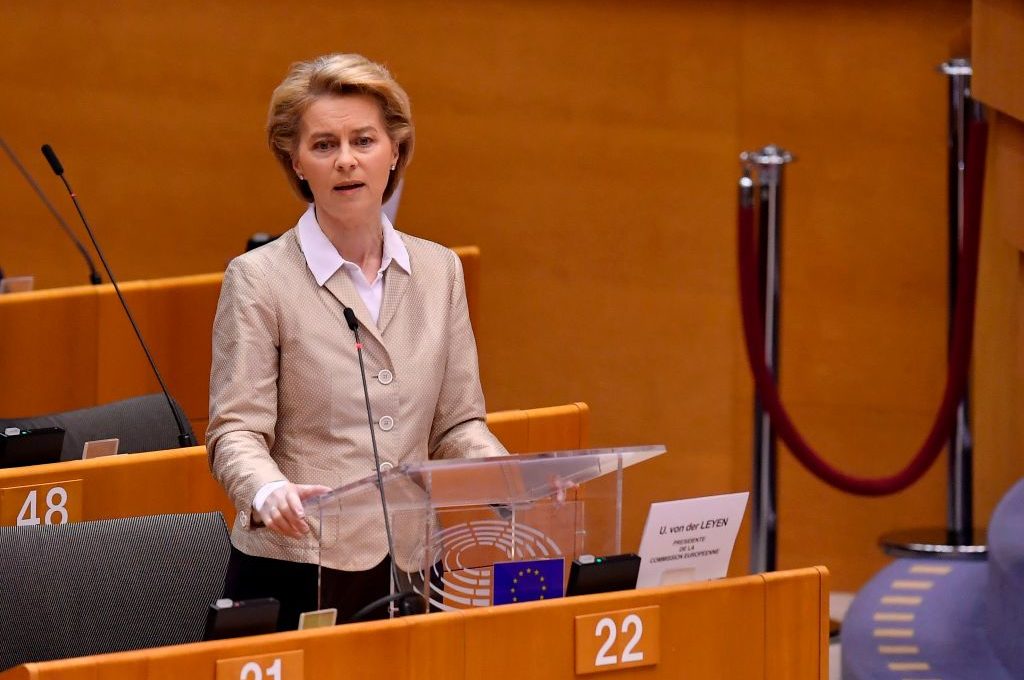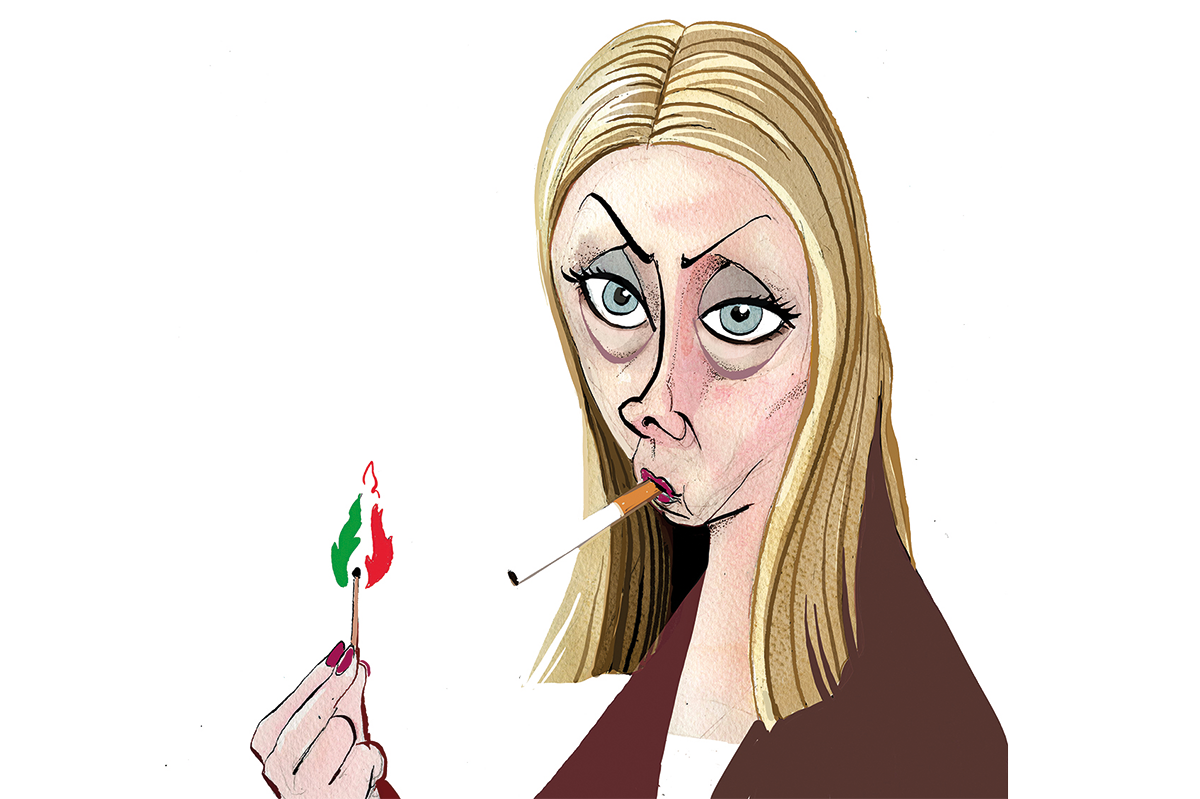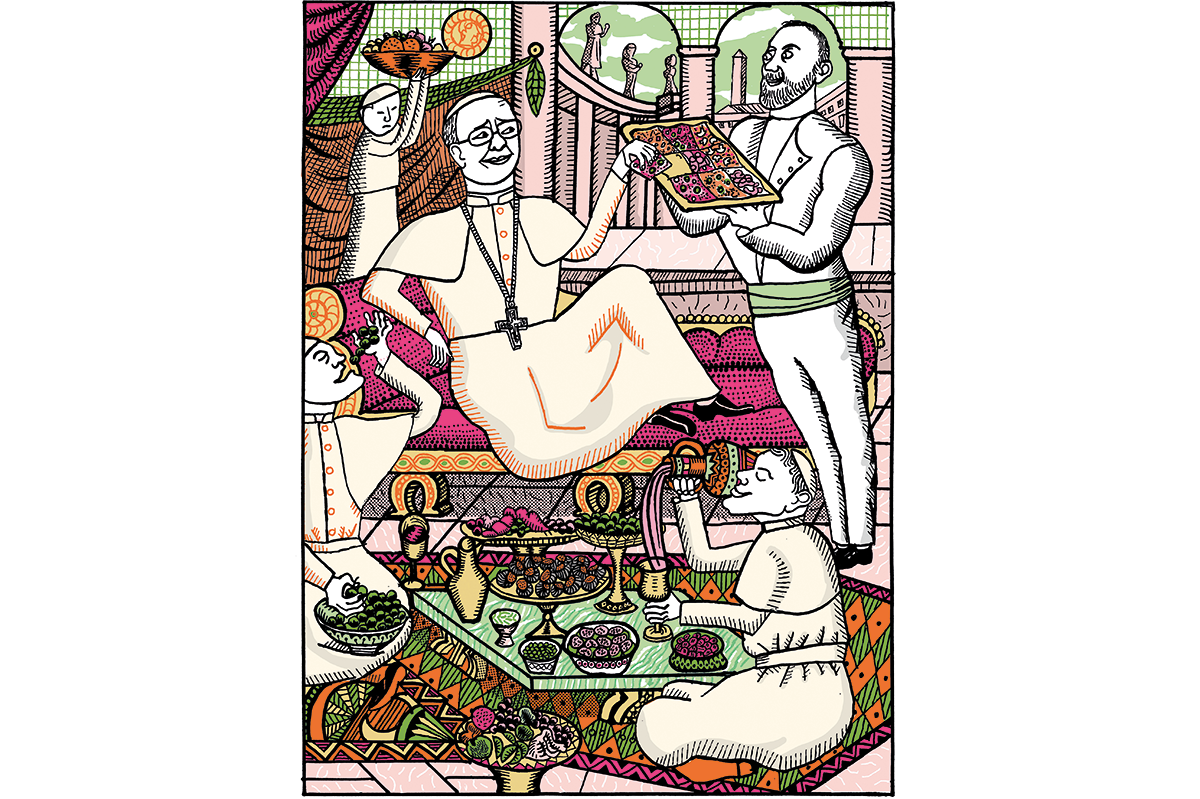Italy’s hospitals have been overwhelmed. Its mortality rate is among the highest in the world. Its economy has cratered, its bond yields have soared. And it is starting to drown under the weight of its accumulated debts. But, hey, at least the EU commission president Ursula von der Leyen feels sorry about the way Italy has been treated, and is willing to apologize. But hold on. The truth is that Italy has been shamefully neglected by the rest of Europe and it is owed far more than a few crocodile tears.
Speaking to the European Parliament today, von der Leyen, a woman who is achieving the almost impossible task of making Jean-Claude Juncker look like a master of political communications, admitted that as the coronavirus ravaged Italy, it had not seen many of the benefits of ‘more Europe’. It was, she said, ‘true that too many were not there on time when Italy needed a helping hand. And yes, for that, it is right that Europe as a whole offers a heartfelt apology.’
https://www.youtube.com/watch?v=Ht9KwnCFRlk&feature=emb_title
Well, that is at least something, even if it is unlikely to make many people on lockdown in Bergamo or Turin feel a whole lot better. Yet it hardly matches up to the scale of the EU’s failings as this crisis has unfolded. Von der Leyen may be too stubborn to admit it, but not only did Brussels fail to offer any concrete assistance, it actively made matters worse.
It was reluctant to close borders as the virus started to spread (even as there is some evidence the infection traveled into the country from Germany). The president of the European Central Bank, Christine Lagarde, shrugged off responsibility for the Italian bond market with lawyerly indifference even as it became clear borrowing would have to soar (and quickly had to apologize when her remarks caused carnage in the financial markets). Worst of all, it has refused to sanction the ‘coronabonds’ that would allow Italy, along with Spain, to at least spend its way out of the crisis.
In the background, the euro, and the punishing aftermath of the single currency’s crisis in 2011 and 2012, have crippled Italy’s economy, leaving it too weak to cope adequately with what will be its third, and worst, recession in the last decade. Its debt is now forecast to go above 175 percent of GDP. The IMF predicts the economy will contract by a catastrophic nine percent this year. And yet the EU’s tight control of its finances means there will be little it can do to counter that.
According to the Bruegel Institute, Italy’s immediate fiscal stimulus will amount to a mere €16 billion ($17.4 billion). Germany’s will be €236 billion ($257 billion). France’s will be €30 billion ($32.6 billion). Even the Netherlands, with a fifth of the population, will spend almost as much. Italy won’t be allowed to do anything on the scale that is need. And there is a real risk its economy may collapse completely
‘Saying sorry only counts for something if it changes behavior,’ von der Leyen also told the European Parliament. The trouble is, there is little sign of that. The EU has offered little in the way of medical assistance. And it is preventing the country from any hope of an economic recovery. An apology, no matter how heartfelt, is hardly enough.
This article was originally published onThe Spectator’s UK website.

























